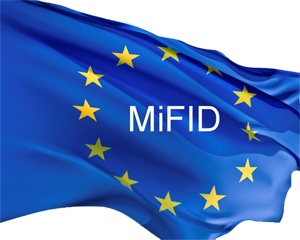The recent decision by the European Commission to delay the implementation of the Markets in Financial Instruments Directive (MiFID II) until January 2018 has been welcomed with open arms.

And it’s no surprise, with details around the regulation not quite finalised and the ‘’exceptional implementation challenges faced by regulators and market participants” - the original deadline would have left many scrambling to catch up.
However, the extra time does not mean that firms can rest on their laurels. A spokesperson from the Financial Conduct Authority (FCA) has said; “Despite the delay, firms need to continue to press ahead with their implementation work… For our [the FCA] part, we will look to finalise the resulting changes to our Handbook as soon as practicable to provide firms with adequate time to complete their implementation”.
Still, the extra breathing time means managers can more effectively plan their budgets and secure resources for MiFID II programmes as well as take a more strategic position in order to cater for the changes that the regulation will have to the fund distribution landscape.
In recent research, all but one of the investment managers asked said that MiFID II will have the largest impact on their strategy over the next two years.
The later deadline will therefore allow firms the chance to develop a more considered plan for fund distribution under the new rules rather than a rushed, defensive approach.
So with this in mind and preparation still very much a-go, what are the key considerations for fund providers distributing funds in the EU?
Investor Protection
MiFID II, in conjunction with much of post-RDR regulation, aims to define the rules around things such as commission and cost disclosure and in doing so aims to improve investor protection - in particular for retail investors.
A large part of investor protection comes down to transparency and increasing investors’ understanding of the products they are being sold.
A report by Deliotte in January this year found that the main considerations when it comes to fund distribution stem from the following changes to investor protection rules laid out by the regulation.
Appropriateness test – with a wider range of products deemed ‘complex’ under MIFID II (such as Alternative Investment Funds) investors will be required to take a test that assesses their knowledge and experience before a fund is sold to them. This will help make sure investors are sufficiently informed about the products they are being sold.
Disclosures – under MiFID II there will be an increase in information available to clients on costs and charges – the concerns are similar to those of the FCA last year, who called for clean share classes, or an ‘all- in’ figure for fund charges. MiFID II demands that a more granular breakdown of all charges be available to investors on demand. This will rely on robust and accurate fund data being available to the industry.
Inducements – the ban on third-party inducements prevents independent advisers and portfolio managers from receiving incentives from fund providers. The intent is to make certain that firms act honestly, professionally and in the best interest of the client. However, this will potentially increase competition in the market as cost comparisons become easier.
Product governance – fund providers will be responsible for making sure that distributors have the information needed to understand and sell the product. Further, distributors will be required to get sales information signed off by product providers – this will mean that providers incur costs related to the ongoing exchange of information and any re-negotiation of terms between providers and distributors.
Distribution – providers will be required to make sure that products and distribution strategies are consistent with the needs of their target market.
So what should fund providers think about when looking to distribute funds?
According to the Investment Association Annual Survey last September, most retail fund distribution in the UK (89 per cent) is done via platforms or financial advisers. So how could the impending implementation of MiFID II affect this?
Firstly, the addition of an appropriateness test for a wider range of products which are to be considered ‘complex’ means that providers may want to be more strategic about their product offering. The report from Deliotte considers that managers may offer more non-complex products to retail investors as one way of avoiding this red tape.
Where providers use platforms, it’s worth considering that under the products governance rules the cost to both themselves and the platforms will increase. While this is mostly expected to affect platforms, banks and financial advisers across the EU may also be affected and the result may mean that distributors look to reduce the number of funds they sell. Managers likely to be affected by a reduction such as this could focus on more D2C solutions – which are already becoming a theme in the UK.
However, it’s worth noting that managers considering selling directly to clients will have to comply with the product governance rules themselves (although it is likely to be a more simple process) and also provide appropriateness tests for complex products.
Essentially the delay to MiFID II’s implementation may provide managers with the opportunity to minimise the negative impacts of the regulation, such as the costs and an increasingly competitive market. Firms that first consider how the regulation should impact their strategy over the next few years rather than adopt a less flexible approach may find themselves in more profitable positions come 2018.
Read:
